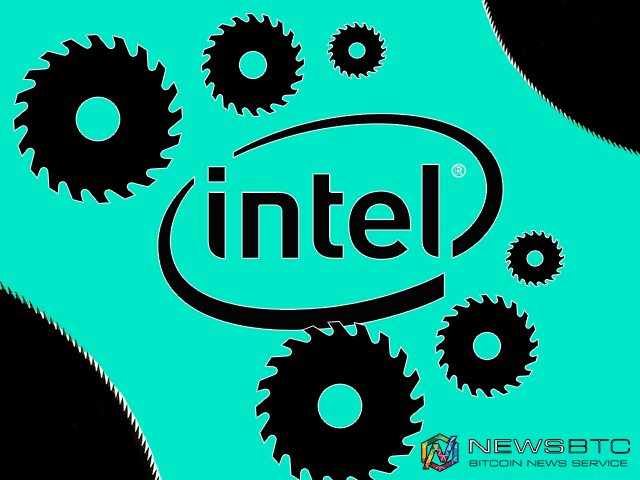Reason to trust

How Our News is Made
Strict editorial policy that focuses on accuracy, relevance, and impartiality
Ad discliamer
Morbi pretium leo et nisl aliquam mollis. Quisque arcu lorem, ultricies quis pellentesque nec, ullamcorper eu odio.
The multinational tech corporation Intel, the largest semiconductor chip manufacturer, is currently keen on blockchain technology. The Santa Clara, California-based company, announced its latest initiative called “Sawtooth Lake” this April alongside a Hyperledger technical discussion meeting. The firm intends to use the platform for building, launching, and operating distributed ledger environments. Intel says that this particular protocol provides an immutable digital record of asset ownership “without a central authority.”
Is Intel’s Sawtooth Cutting Edge Technology?
Since being founded in 1968 in Mountain View, California Intel has climbed to the top of the technology corporate ladder. With blockchain technology in the ears of tech firms and investors worldwide, it’s no wonder Intel wants a piece of the action. Recently releasing a definitive Github explanation of the Sawtooth project Intel details this technology can be used for a wide array of applications. This includes “international remittance, insurance claim processing, supply chain management and the Internet of Things (IoT).” Intel describes the importance of these emerging database records saying:
“Instead of a single, centralized database, participants in the ledger contribute resources to shared computation that ensures universal agreement on the state of the ledger. While Bitcoin is the most popular distributed ledger, the technology has been proposed for many different applications,”
According to Intel, the experimental project is a multifaceted platform for constructing these applications. Currently, the protocol’s source code is distributed under an Apache license and developers can start molding digital ledgers from this framework. The consensus and algorithm is a touch different than the likes of Proof of Work. The platform borrows and adaptation of Ripple and Stellar consensus protocols with Quorum Voting. Sawtooth also provides an algorithm called PoET (Proof of Elapsed Time). Intel says PoET distributes consensus “efficiently” and provides the following attributes:
- Fairness: The function should distribute leader election across the broadest possible population of participants.
- Investment: The cost of controlling the leader election process should be proportional to the value gained from it.
- Verification: It should be relatively simple for all participants to verify that the leader was legitimately selected.
Blockchain technology can also add a lot more innovation to the Internet of Things, and Intel is very interested in this technological sector. A distributed ledger and micropayments can allow simple everyday devices to communicate with the very same chips the corporation produces. Intel’s Sawtooth is part of a collaboration with the Linux Foundation’s Hyperledger project, and the hope is to streamline these technologies for enterprise solutions. Imad Sousou, vice president and general manager, Open Source Technology Center, Intel Corporation said back in February:
“Blockchain technology can help enable secure transfer of digital assets among known and unknown parties, Intel looks forward to collaborating with the Hyperledger Project to advance the security, scalability, and privacy of transactions in enterprise and permission-less systems.”
Intel’s Sawtooth environment is experimental, and the company warns users to take caution when developing. Also much like Ripple or Stellar the platform seems to have a centralized aspect to its transactions and data. PoET’s consensus is very different than Bitcoin’s PoW or Ethereum’s Proof of Stake (PoS). The world of new enterprise level permissioned blockchains are making waves within the cryptocurrency community. Some enthusiasts are very much against these privatized applications, some are for them, and some just don’t care as they believe these permissioned blockchains are just vapor in the wind.
Source: Intel’s Sawtooth Introduction
Header Image Courtesy of NewsBTC.com All Rights Reserved



























